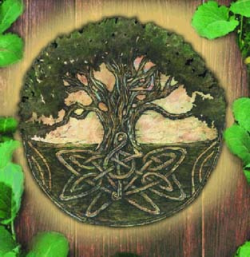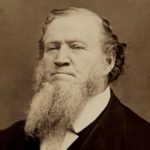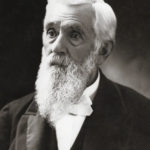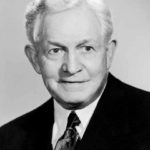 Going to the temple is about more than the ritual and theological discourse. They are of course essential, because without them there would be no temple experience. Yet, the only reason a believer can return is out of obligation to people who have died. That means researching genealogy. Preferably the LDS Church leadership wants us to locate our own ancestors. Spiritual and temporal blessings can accompany the process of searching, locating, indexing, and doing the temple work for deceased individuals. The more involved at the start, the greater the satisfaction. For some it gives the same feeling as helping a living person become converted to the gospel.
Going to the temple is about more than the ritual and theological discourse. They are of course essential, because without them there would be no temple experience. Yet, the only reason a believer can return is out of obligation to people who have died. That means researching genealogy. Preferably the LDS Church leadership wants us to locate our own ancestors. Spiritual and temporal blessings can accompany the process of searching, locating, indexing, and doing the temple work for deceased individuals. The more involved at the start, the greater the satisfaction. For some it gives the same feeling as helping a living person become converted to the gospel.
Nothing has ever been easy about the work. When Joseph Smith first taught the gospel doctrine of baptism for the dead, members rushed to the banks of the Mississippi River and immersed themselves in behalf of any deceased relative that came to mind. They didn’t even consider if doing so for the opposite gender was appropriate. All they knew was a great mission of salvation had opened up and they were excited to participate. Joseph Smith had to pull them back and explain (Doctrine and Covenants 127:5-8) that it had to be done in an orderly fashion accompanied by written records:
5 And again, I give unto you a word in relation to the baptism for your dead.
6 Verily, thus saith the Lord unto you concerning your dead: When any of you are baptized for your dead, let there be a recorder, and let him be eye-witness of your baptisms; let him hear with his ears, that he may testify of a truth, saith the Lord;
7 That in all your recordings it may be arecorded in heaven; whatsoever you bbind on earth, may be bound in heaven; whatsoever you loose on earth, may be loosed in heaven;
8 For I am about to restore many things to the earth, pertaining to the priesthood, saith the Lord of Hosts.
He also explained in revelation that a Temple had to be built for the baptisms, and other works of salvation, to continue. Because there was not yet one on the earth, they would be accepted without for a short time.
Work in behalf of the dead is so important that the first message of the gospel by the Angel Moroni to Joseph Smith contained a repeated quote on the subject. As reported by Joseph Smith, “And again, he quoted the fifth verse thus: Behold, I will reveal unto you the Priesthood, by the hand of Elijah the prophet, before the coming of the great and dreadful day of the Lord. He also quoted the next verse differently: And he shall plant in the hearts of the children the promises made to the fathers, and the hearts of the children shall turn to their fathers. If it were not so, the whole earth would be utterly wasted at his coming” (Joseph Smith—History 1:38–39). Once the doctrine of temple work was revealed and the keys delivered by Elijah, the quotes were explained more in-depth (Doctrine and Covenants 128:15,18):
15 And now, my dearly beloved brethren and sisters, let me assure you that these are principles in relation to the dead and the living that cannot be lightly passed over, as pertaining to our salvation. For their salvation is necessary and essential to our salvation, as Paul says concerning the fathers—that they without us cannot be made perfect—neither can we without our dead be made perfect . . .
18 I might have rendered a plainer translation to this, but it is sufficiently plain to suit my purpose as it stands. It is sufficient to know, in this case, that the earth will be smitten with a curse unless there is a welding link of some kind or other between the fathers and the children, upon some subject or other—and behold what is that subject? It is the baptism for the dead. For we without them cannot be made perfect; neither can they without us be made perfect. Neither can they nor we be made perfect without those who have died in the gospel also; for it is necessary in the ushering in of the dispensation of the fulness of times, which dispensation is now beginning to usher in, that a whole and complete and perfect union, and welding together of dispensations, and keys, and powers, and glories should take place, and be revealed from the days of Adam even to the present time. And not only this, but those things which never have been revealed from the foundation of the world, but have been kept hid from the wise and prudent, shall be revealed unto babes and sucklings in this, the dispensation of the fulness of times.
Many today continue to gain comfort from knowing those who pass from this life can still receive the ordinances of the gospel. A member of the LDS Church who participates in genealogical work can have greater appreciation for the temple. They will learn more about their families and feel better about themselves. The spirit of Elijah will become real for them as they search out and do temple work for their ancestors. Continue reading →

 Those who wear beards must be rebelling against something, because a clean cut look represents conservative and productive lives. They are not following the LDS leadership’s example. About 15 years ago that would have been the argument, and not without some truth from the past. Like all fads of fashion the times have changed. Beards are no longer grown to make a clear statement. For most of those who grow one today it is about physical comfort and convenience, if not the look. Beards may not be widespread, but a lot of faithful Mormons are growing them when they wouldn’t have not too long ago. And that is just fine.
Those who wear beards must be rebelling against something, because a clean cut look represents conservative and productive lives. They are not following the LDS leadership’s example. About 15 years ago that would have been the argument, and not without some truth from the past. Like all fads of fashion the times have changed. Beards are no longer grown to make a clear statement. For most of those who grow one today it is about physical comfort and convenience, if not the look. Beards may not be widespread, but a lot of faithful Mormons are growing them when they wouldn’t have not too long ago. And that is just fine. Despite Joseph Smith as the founding prophet never having a beard, prophets for generations who followed him had one. In fact, there are prophets that could be recognized by their beards alone. Brigham Young, John Taylor, and Wilford Woodruff had chin beards without mustaches. Lorenzo Snow and Joseph F. Smith had long flowing beards. Heber J. Grant and George Albert Smith had relatively short facial hair. There were even times and places where having a beard was required by missionaries because it represented maturity.
Despite Joseph Smith as the founding prophet never having a beard, prophets for generations who followed him had one. In fact, there are prophets that could be recognized by their beards alone. Brigham Young, John Taylor, and Wilford Woodruff had chin beards without mustaches. Lorenzo Snow and Joseph F. Smith had long flowing beards. Heber J. Grant and George Albert Smith had relatively short facial hair. There were even times and places where having a beard was required by missionaries because it represented maturity. It wasn’t until the clean shaven President David O. Mckay that beards started going out of fashion for LDS leaders. His lack of a beard was a conscious choice. He wanted to make a statement about leaving the pioneer past and go forward into the future. That future in the 1950s was the neat, professional, and respectable businessman look. The “unkempt” look of a hairy face was out, even if only one generation ago they were signs of maturity. For the post-WWII years a suit and a tie with a shaved face meant achieving the American dream. After more than 100 years of persecution and living in the wilderness, the LDS Church had come out to join respectable society.
It wasn’t until the clean shaven President David O. Mckay that beards started going out of fashion for LDS leaders. His lack of a beard was a conscious choice. He wanted to make a statement about leaving the pioneer past and go forward into the future. That future in the 1950s was the neat, professional, and respectable businessman look. The “unkempt” look of a hairy face was out, even if only one generation ago they were signs of maturity. For the post-WWII years a suit and a tie with a shaved face meant achieving the American dream. After more than 100 years of persecution and living in the wilderness, the LDS Church had come out to join respectable society.  Going to the temple is about more than the ritual and theological discourse. They are of course essential, because without them there would be no temple experience. Yet, the only reason a believer can return is out of obligation to people who have died. That means researching genealogy. Preferably the LDS Church leadership wants us to locate our own ancestors. Spiritual and temporal blessings can accompany the process of searching, locating, indexing, and doing the temple work for deceased individuals. The more involved at the start, the greater the satisfaction. For some it gives the same feeling as helping a living person become converted to the gospel.
Going to the temple is about more than the ritual and theological discourse. They are of course essential, because without them there would be no temple experience. Yet, the only reason a believer can return is out of obligation to people who have died. That means researching genealogy. Preferably the LDS Church leadership wants us to locate our own ancestors. Spiritual and temporal blessings can accompany the process of searching, locating, indexing, and doing the temple work for deceased individuals. The more involved at the start, the greater the satisfaction. For some it gives the same feeling as helping a living person become converted to the gospel.